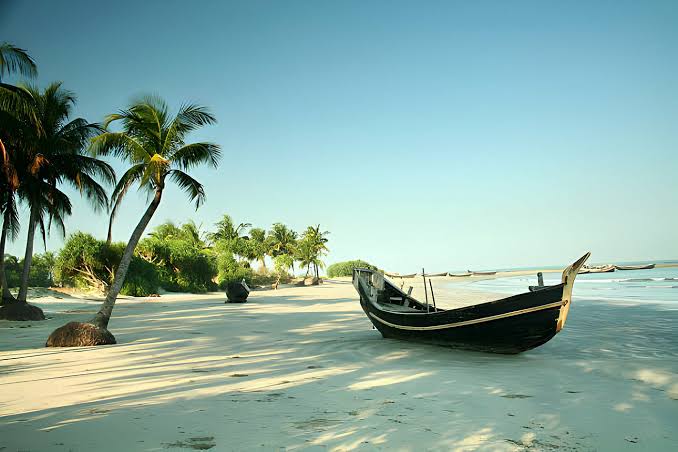St Martin’s Island, a small but significant piece of land in the Bay of Bengal, has become a focal point in a major geopolitical struggle. Located off the coast of Bangladesh, the island covers just about 8 square kilometers. Despite its small size, its strategic location has made it a highly sought-after asset by global powers.
Strategic Importance of St Martin’s Islands
The Bay of Bengal is an important region for international trade, with many ships passing through its waters. Control over St. Martin’s Island means having a stronghold in this critical area, which can be used to monitor or even control the movement of goods across the seas. As a result, many powerful nations have shown interest in the island, recognizing its potential to influence regional power dynamics.
For Bangladesh, St Martin’s Island is not just another piece of land; it is a symbol of national pride and sovereignty. The country’s control over the island ensures that it has a say in the strategic affairs of the region. However, this control has come under threat as foreign powers seek to gain influence over the island, leading to rising tensions both within and outside Bangladesh.
Tensions Rise Over Sovereignty of St Martin Island
The sovereignty of St Martin’s Island has become a source of tension, not just for Bangladesh but also on the international stage. Reports have surfaced suggesting that certain foreign powers have exerted pressure on Bangladesh to give up control of the island. The idea is that by ceding sovereignty, these powers could gain a significant strategic advantage in the region.
US Warns of Strong Bangladesh Sanctions; Likely to Trigger Turmoil
The situation has sparked a wave of concern and unrest in Bangladesh. The notion of surrendering such a crucial part of the country’s territory has been met with strong opposition from the Bangladeshi people. The island is seen as an integral part of the nation, and any attempt to relinquish it is viewed as a direct attack on the country’s sovereignty.
The situation escalated further when Sheikh Hasina, the former Prime Minister of Bangladesh, accused the United States of orchestrating her ouster from power. According to her, the pressure to surrender St. Martin’s Island was part of a larger plan by the U.S. to gain control over the Bay of Bengal. She claimed that her refusal to comply with these demands led to her forced resignation, as she chose to protect her country’s sovereignty rather than bow to foreign pressure.
US-China War: Looming Threat Over Philippines’ Strategic Role in Spratly Islands
These accusations have added fuel to the already tense atmosphere surrounding St Martin’s Island. The idea that a powerful nation like the U.S. could be involved in such a plot has stirred anger and fear among the Bangladeshi populace, further complicating the political landscape in the country.
The Impact on Bangladesh’s Future
The ongoing conflict over St Martin’s Island has significant implications for Bangladesh. The island’s strategic importance has made it a pawn in a much larger geopolitical game, with global powers vying for influence in the Bay of Bengal. As a result, Bangladesh finds itself at the center of a dangerous struggle, with its sovereignty and national pride hanging in the balance.
China’s Growing Influence in Indo-Pacific Poses Threat for US Bases in Guam and Mariana Islands
Domestically, the conflict has had a profound impact on Bangladesh’s political stability. The accusations made by Sheikh Hasina have deepened divisions within the country, as citizens grapple with the possibility that their nation’s independence could be compromised. The fear of losing control over St. Martin’s Island has led to widespread concern, with many people questioning the future of their country.
Internationally, the situation has strained Bangladesh’s relations with other nations. The possibility of foreign intervention in the island’s sovereignty has created a delicate and volatile situation, with the potential for further escalation if not handled carefully. The tension surrounding St Martin’s Island has highlighted the precarious position of smaller nations in the global power struggle, as they are often caught in the crossfire of larger geopolitical conflicts.
Yangshan Port: Epicenter of China’s Trade Challenge to EU Dominance
Despite these challenges, the people of Bangladesh remain determined to protect their sovereignty. St Martin’s Island is more than just a strategic asset; it is a symbol of national pride and resilience. As the conflict continues to unfold, the fate of the island remains uncertain, with its future tied to the broader power dynamics of the region. The situation serves as a reminder of the complexities and dangers of global politics, where even the smallest pieces of land can become battlegrounds for influence and control.



